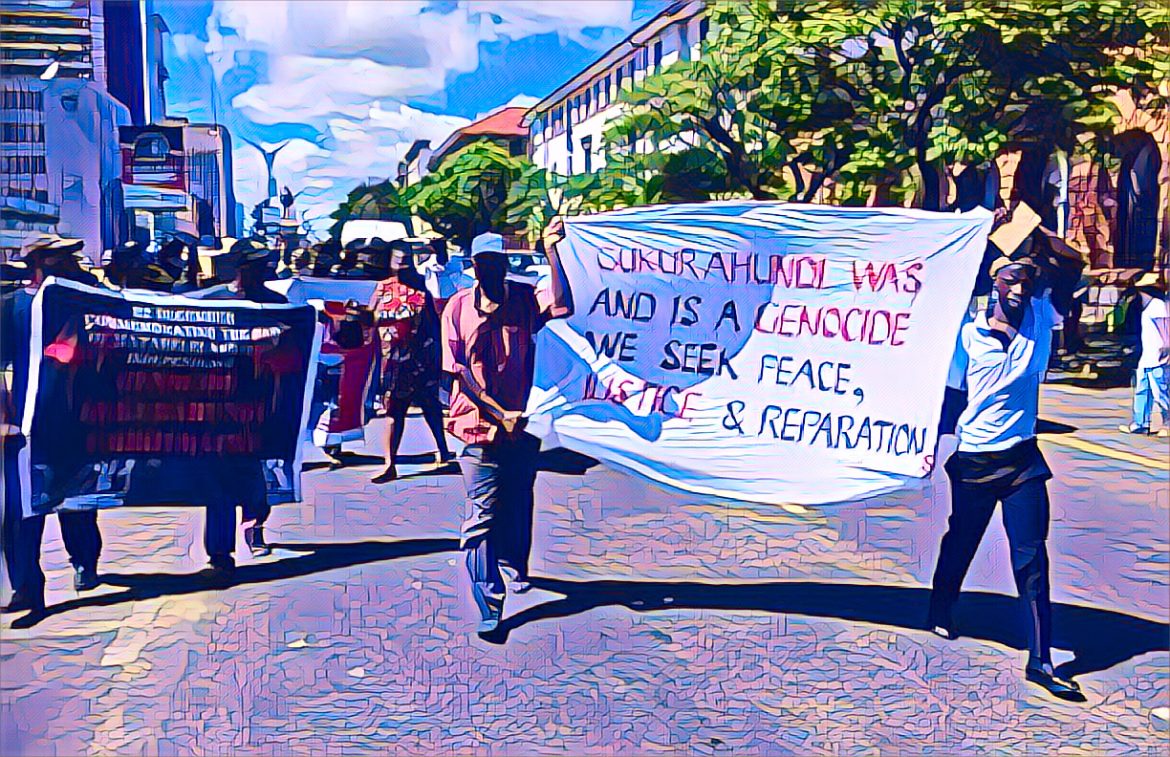President Emmerson Mnangagwa is under pressure to release the findings of the Dumbutshena and Chihambakwe Commissions of Inquiry as part of a truth-telling initiative regarding the Gukurahundi atrocities. This call comes shortly after Mnangagwa launched a new program to investigate the 1980s genocide
The Gukurahundi period (1983-1987) remains a dark chapter in Zimbabwe’s history, marked by the deaths of approximately 20,000 mostly Ndebele-speaking people. This episode continues to haunt the legacies of Mnangagwa and his predecessor, Robert Mugabe.
The Dumbutshena Commission (1981) and the Chihambakwe Commission (1983) were established to investigate these events, with reports submitted after thorough investigations. However, these reports have never been made public, with the National Peace and Reconciliation Commission’s (NPRC) Selo Nare claiming they had been lost.
Calls for Transparency and Accountability
The Heal Zimbabwe Trust (HZT) has emphasized the need for transparency and accountability in dealing with the Gukurahundi issue. Following Mnangagwa’s recent launch of the Gukurahundi Community Engagement Outreach Programme in Bulawayo, HZT called for the release of the Dumbutshena and Chihambakwe reports. They argue that this is essential for truth-telling and healing.
“Government must release the reports of the Dumbutshena and Chihambakwe Commissions of Inquiry as part of truth-telling,” stated HZT. They further recommended that the government step back from leading the process due to potential conflicts of interest. Although Mnangagwa has indicated that traditional leaders are steering the initiative, HZT insists that he should not be seen as influencing the chiefs.
During the Gukurahundi period, Mnangagwa served as Minister of State Security, overseeing operations of the Fifth Brigade in the southern and southwestern regions of Zimbabwe. The brigade, notorious for its brutal actions, reported directly to Mugabe and Mnangagwa.
Community Engagement and Support
Past efforts by the NPRC to address the concerns of victims and their families have fallen short of providing a satisfactory resolution. HZT advises that the government ensure witness protection for those willing to come forward. They also recommend that the hearings be decentralized to reach remote areas and involve collaboration with Civil Society Organizations (CSOs).
To gain trust and ensure comprehensive engagement, HZT suggests measures to protect witnesses, including anonymity and legal safeguards. This approach aims to encourage more people to share their experiences without fear of retaliation.
HZT also emphasizes the importance of involving CSOs in the process. These organizations can provide critical support, from logistical arrangements to psychological counseling for survivors and their families. The collaboration would help create a more inclusive and supportive environment for those affected by the Gukurahundi atrocities.
The demand for the release of the Dumbutshena and Chihambakwe reports highlights the ongoing need for transparency in addressing historical injustices. However, for many Zimbabweans, uncovering the truth about the Gukurahundi is a crucial step toward national healing and reconciliation.
Source: New Zimbabwe


